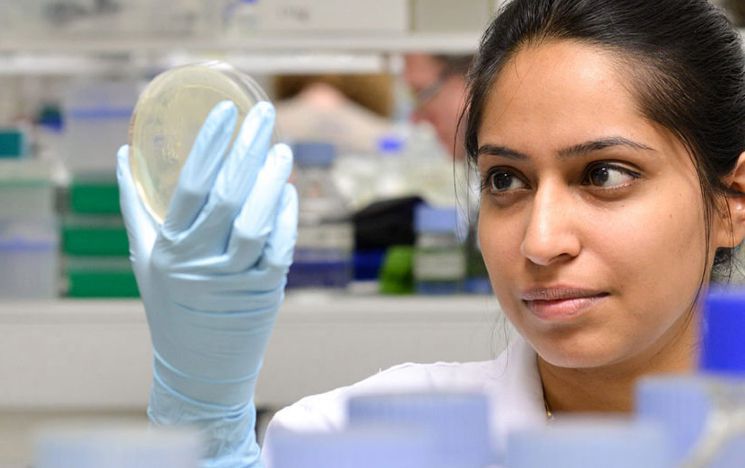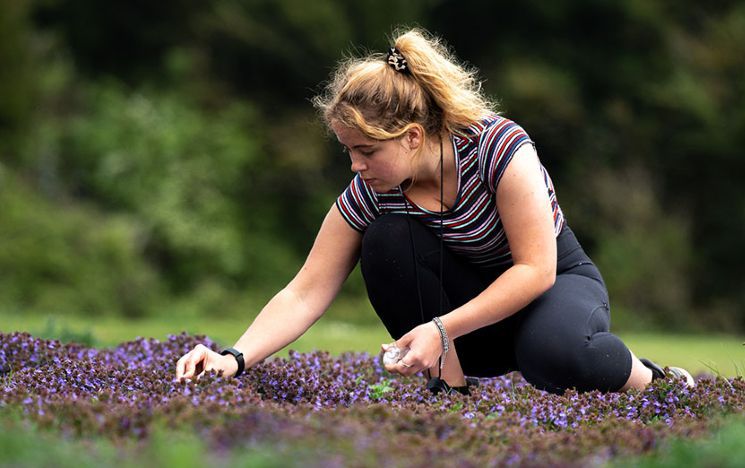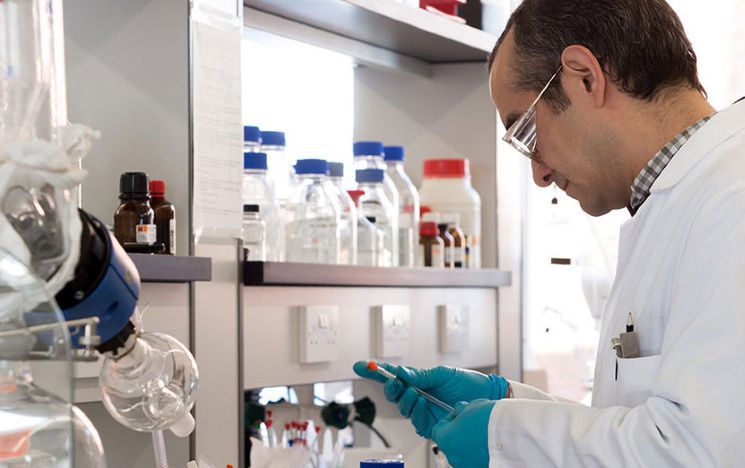PhD degrees in Life Sciences
Get involved in our cutting-edge and interdisciplinary research and contribute your knowledge to our specialisms which range across the Life Sciences.
Discover our PhD degrees
Biology
Biomedical Science
Chemistry
Ecology, Conservation and Environment
Genetics
Neuroscience
Zoology and Animal Studies
PhDs at Sussex
If you’d like to join us as a research student, there are three main routes:
- Applying for a funded project
- Browsing our potential supervisors and proposing your own research project (self-funding).
- Browse available PhD projects in the International PhD Academy if you’re a self-funded or sponsored international student applying to the International PhD Academy
International PhD Academy
Would you like to develop your knowledge and research skills before you undertake your PhD research? If you’re a self-funded or sponsored international applicant, join the thriving community in the School of Life Sciences’ International PhD Academy.
You’ll have the opportunity to:
- develop new skills and knowledge in a rich, multidisciplinary environment
- get the training you need to build a solid foundation in Year 1 of your PhD for your main research project
- work on high-impact research projects, opening many career paths
- benefit from bespoke academic, personal and professional development plans.
Year 1 training is delivered through a wide range of audited modules, listed below. Research projects available to International PhD Academy students span across the entire Life Sciences and are also found below, listed by PhD degree.
Information on applying to the International PhD Academy is included in the “How to apply” section of each PhD degree prospectus, which can be reached from the “Discover our PhD degrees” links above.
- Audited modules in our International PhD Academy (2025 entry)
The structure of Year 1 of your PhD can be tailored to your previous research experience.
You’ll be embedded in the laboratory of your supervisor and start your research project. If you need extra training to support your progress, subject-specific taught modules are available. You’ll audit these modules, which means you take part in the teaching and learning activities but don’t submit any assessments for credit. This extra training will give you the skills and confidence to excel in your PhD research and open a wealth of career opportunities.
Training modules available for auditing may include:
- Advanced Methods in Molecular Research
- Advanced Techniques in Neuroscience
- Bio-organic Chemistry
- Symmetry, Bonding and Molecular Spectroscopy
- Practical Techniques in Cancer Cell Biology
- Practical Techniques in Cell and Molecular Biology
- Skills for Research Bioscientists
- Chemical Nanoscience and Surfaces
- Structure Determination in Organic and Inorganic Chemistry
- Advanced Techniques in Experimental Chemistry
We regularly review our modules to incorporate student feedback, staff expertise, as well as the latest research and teaching methodology. We’re planning to run these modules in the academic year 2025/26. However, there may be changes to these modules in response to feedback, staff availability, student demand or updates to our curriculum. We’ll make sure to let you know of any material changes to modules at the earliest opportunity.
In the School of Life Sciences, we believe research is the key to progress and as a PhD student you will be an integral part of that vision. You'll also be joining a vibrant and supportive community of scientists.” Dr frances pearl
Director of Postgraduate Research, School of Life Sciences
Contact
If you have any queries about PhDs in the School of Life Science, email lifesci-REC@sussex.ac.uk


